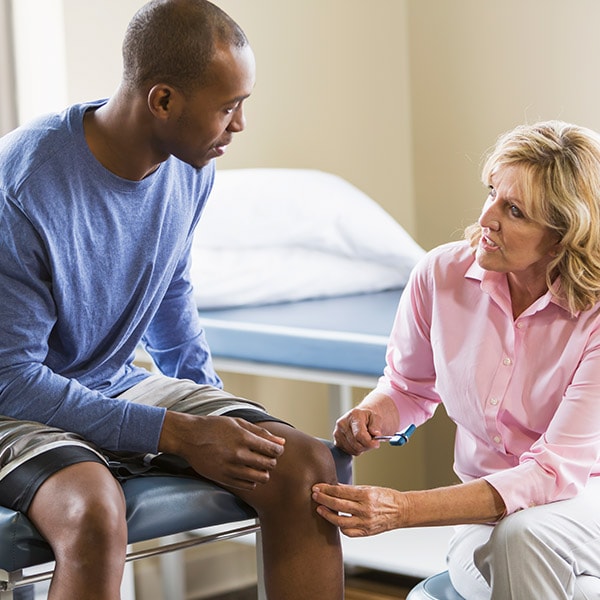Talk to your surgeon about which of these measures apply, or may be helpful, to you.
The wound site
After you go home, you need to look after the wound site by keeping it dry and clean until the sutures or staples are removed.
Reducing swelling
Keep your leg elevated as much as possible for the first few days after surgery. Apply ice as recommended by your doctor to relieve swelling and pain.
Walking with aids
You’ll probably need crutches, a stick or a knee brace to keep weight off the joint while it heals. Your surgeon will tell you when it’s safe to put weight on your foot and leg.
Watching out for infection
Signs of infection in the wound include redness, heat, swelling, discharge and increased pain. If you think the wound might have become infected, contact your surgeon immediately.
Stitch or staple removal
See your GP to have your stitches or staples removed around 10 days after surgery.
Scar management
Once the scar has healed, you can rub a scar reduction cream, vitamin E or sorbolene into the area to help with healing.
Driving
Your doctor will discuss with you when it’s okay to drive. Most patients can drive 1–3 weeks after their procedure.

Pain medications
Opiate pain medication and lack of exercise can cause constipation. Keep track of your bowel movements. If constipation becomes a problem, you may need to take a laxative or reduce or modify your pain medication. Discuss alternatives with your doctor.
How long to take your pain medication
Pain tolerance varies from patient to patient, but most patients need pain medication during recovery. If you’ve been taking strong pain relievers, you should try and reduce your dependence on them. This is best done gradually, by tapering your dosage until you can manage without them. Work with your GP on this.
Important: Don’t drive or operate heavy machinery until your surgeon gives you the okay.







